When Laughter Hurts: Rethinking Embarrassing Family Anecdotes
There’s nothing quite like that heart-sinking moment when a cherished family dinner turns into an unintended roast of your childhood. In this compelling Reddit post, a user recounts the all-too-common scenario of a well-meaning parent repeatedly sharing embarrassing childhood stories at every gathering.
The narrative vividly captures the mix of humor and discomfort that ensues when personal memories are treated as mere fodder for laughter. It’s a scenario that many can relate to—a reminder that even the funniest anecdotes can sometimes sting.
Imagine sitting through another retelling of that cringe-worthy tale as your parent’s animated voice fills the room. The story isn’t just a harmless joke; it’s a repeated display of vulnerability turned into entertainment. The emotions run deep, blending nostalgia with a tinge of sorrow, urging us to rethink what it means to share personal history in a family setting.

‘LPT: don’t use your child’s embarrassing stories as dinner party talk. They are your child’s personal memories and humiliating them for a laugh isn’t cool.’
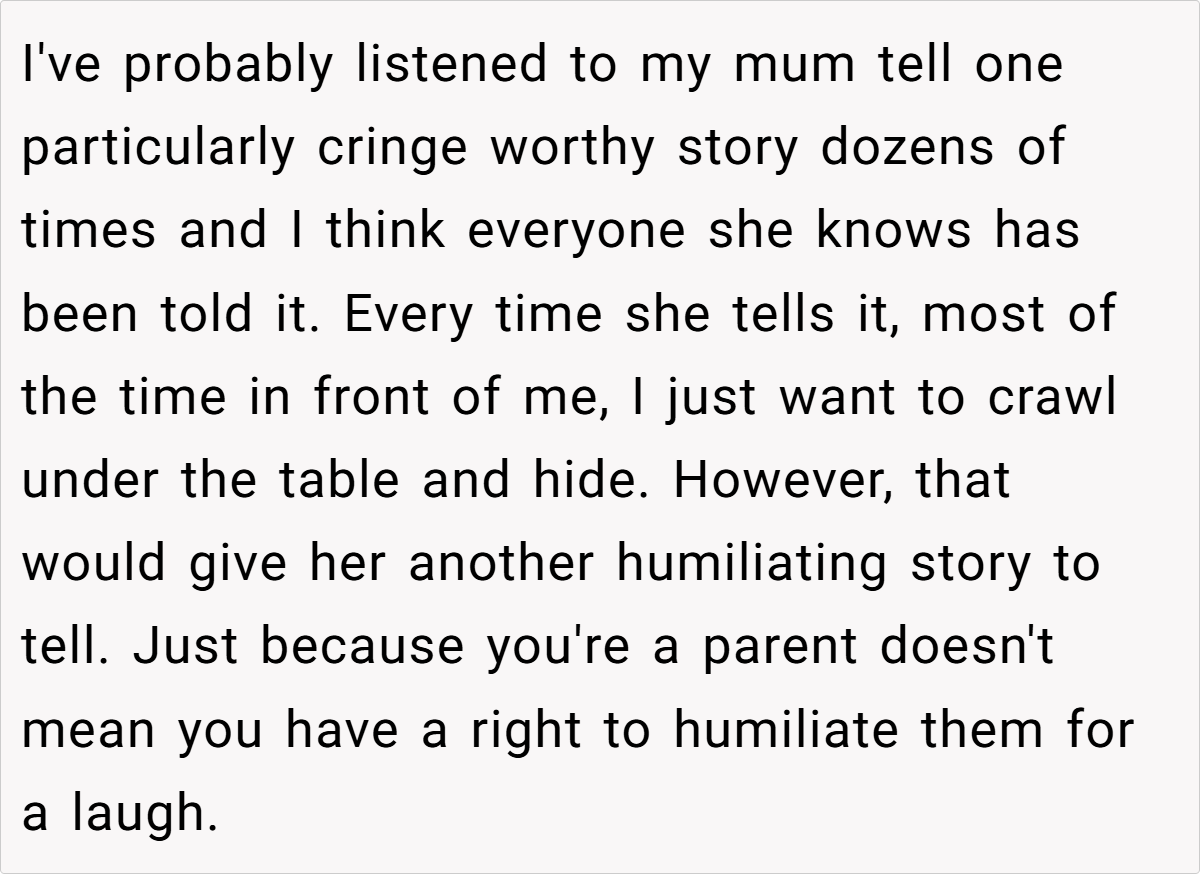
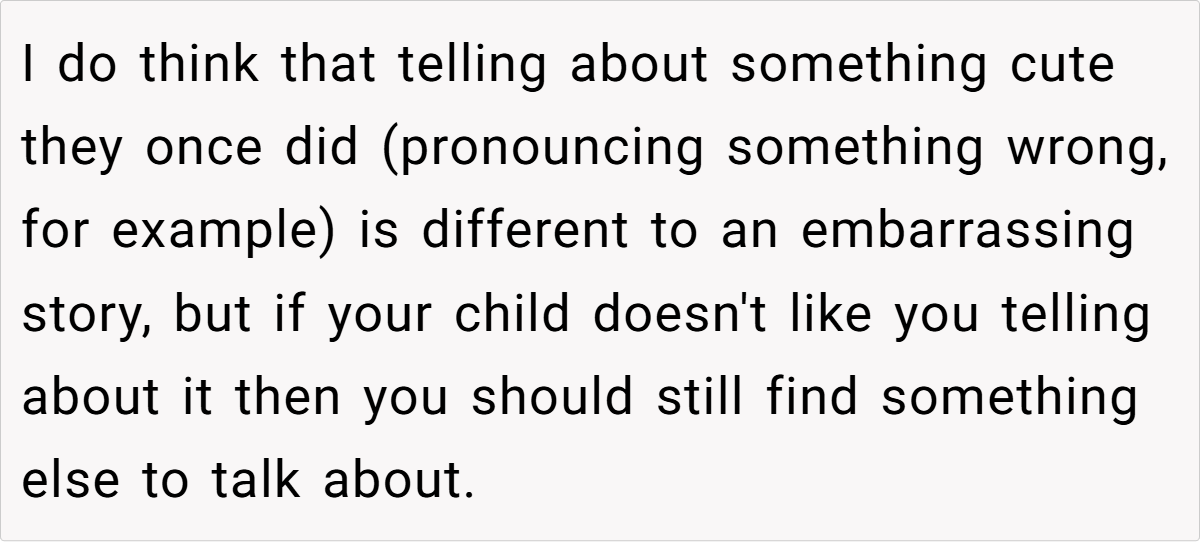
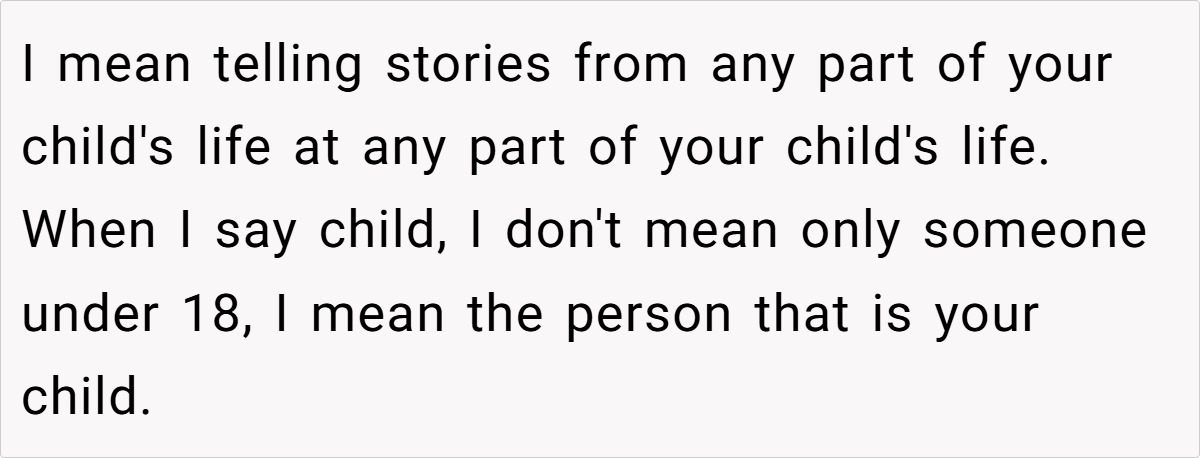
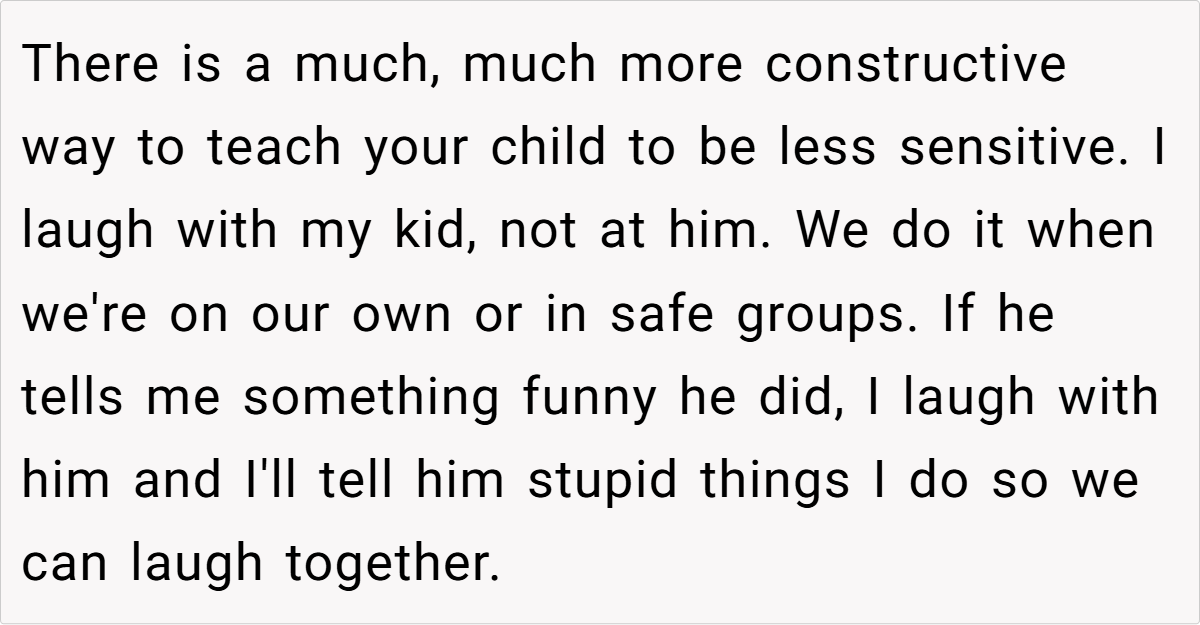
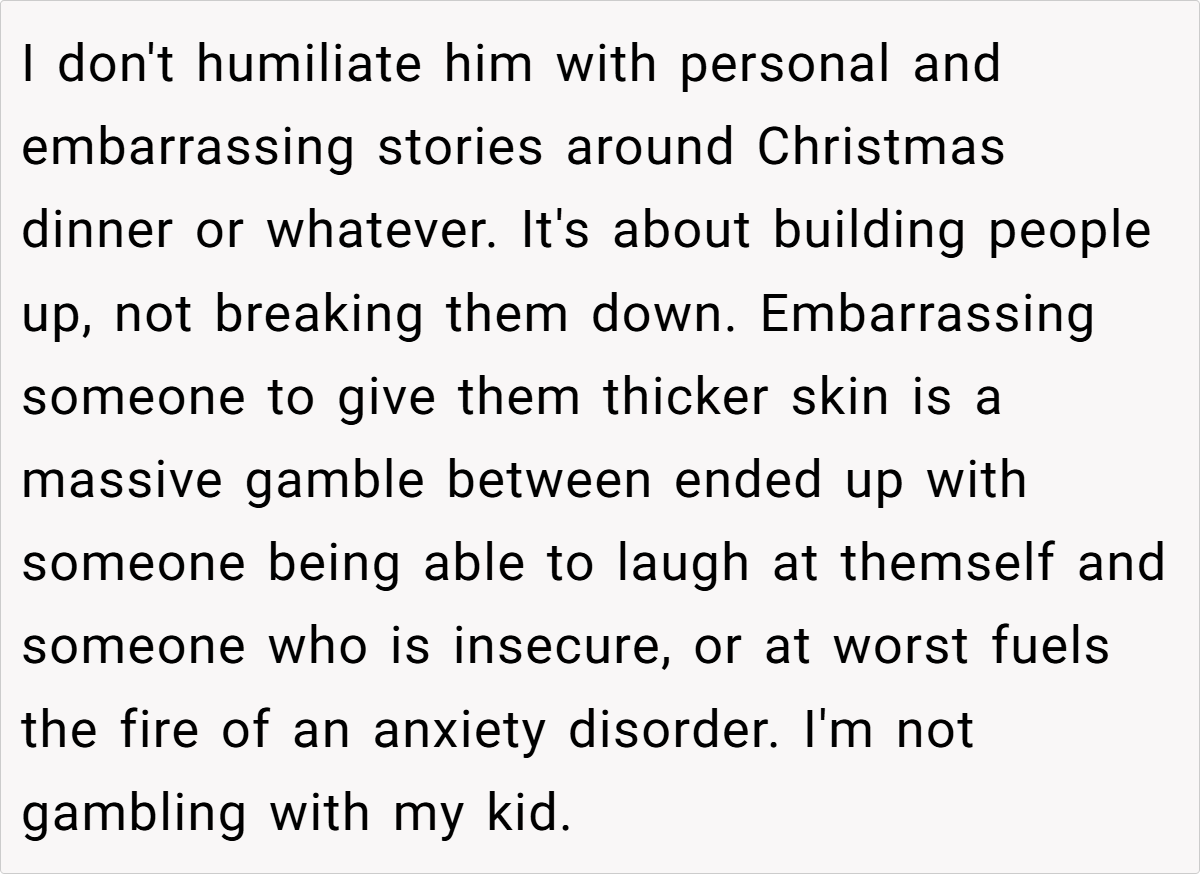
Sometimes, a family story isn’t just a funny memory—it’s a window into deeper dynamics. Letting these personal moments become punchlines can inadvertently chip away at a child’s self-esteem. The post reminds us that while laughter is an important part of family life, it should never come at the cost of someone’s dignity. Parents walk a fine line between playful banter and emotional harm, and it’s a balance that requires constant care and sensitivity.
In this scenario, the repeated retelling of embarrassing moments isn’t just about humor—it reflects a larger issue of respect and trust in the parent-child relationship. The story reveals that even well-intentioned actions can lead to lasting emotional scars if boundaries aren’t respected. By frequently spotlighting a child’s most vulnerable moments, parents may unknowingly diminish their child’s self-worth, leaving them feeling exposed in every social setting.
Expanding the discussion further, this phenomenon touches on broader societal norms about humor and respect. In many cultures, using personal anecdotes to bond is common, yet the risk of crossing into humiliation is high. Consider the case of celebrity relationships where personal stories sometimes make headlines—think of how actor Ryan Reynolds has humorously recounted personal mishaps, but always with the consent and mutual respect of his partner. The public nature of these retellings can sometimes blur the line between shared amusement and public shaming, urging us to be more mindful about our private histories.
“Humiliating a child, even in the name of humor, risks undermining the very foundation of trust and emotional security that is critical for their development,” says Dr. Laura Markham, a renowned parenting expert known for her work on emotional coaching and positive discipline. Her insights emphasize that the impact of such stories isn’t limited to fleeting embarrassment—it can affect a child’s self-perception and interpersonal trust well into adulthood. This expert perspective challenges parents to reframe their narratives, focusing on uplifting shared memories rather than exposing old wounds.
Building on this understanding, the way forward involves rethinking our approach to humor within families. Instead of using personal anecdotes as ammunition, consider sharing moments that invite collective laughter without singling out vulnerabilities. Encouraging a private exchange of funny stories can foster intimacy and mutual respect. For those navigating these sensitive dynamics, resources like Aha! Parenting offer valuable advice on balancing humor with care (learn more at Aha! Parenting). By embracing a forward-thinking perspective, we can nurture environments where laughter heals rather than hurts.
Here’s what people had to say to OP:
Here are some hot takes from the Reddit community—candid, humorous, and refreshingly blunt.
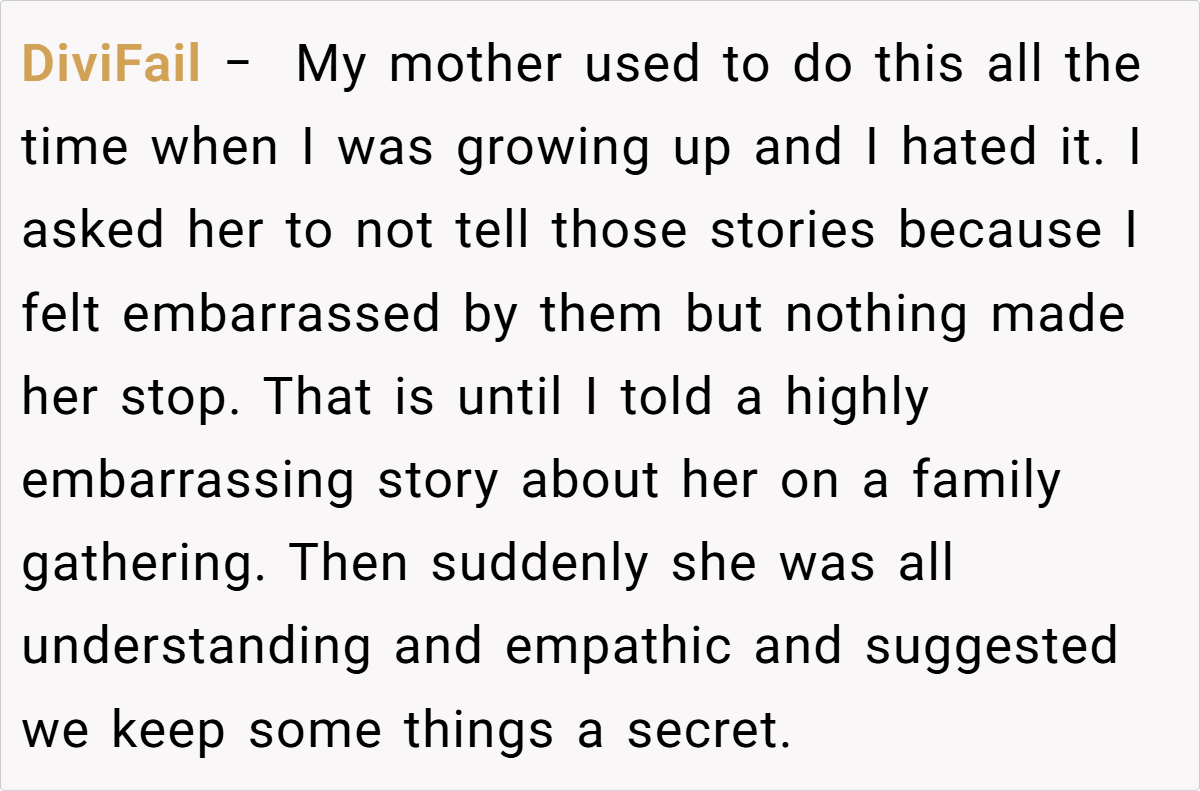
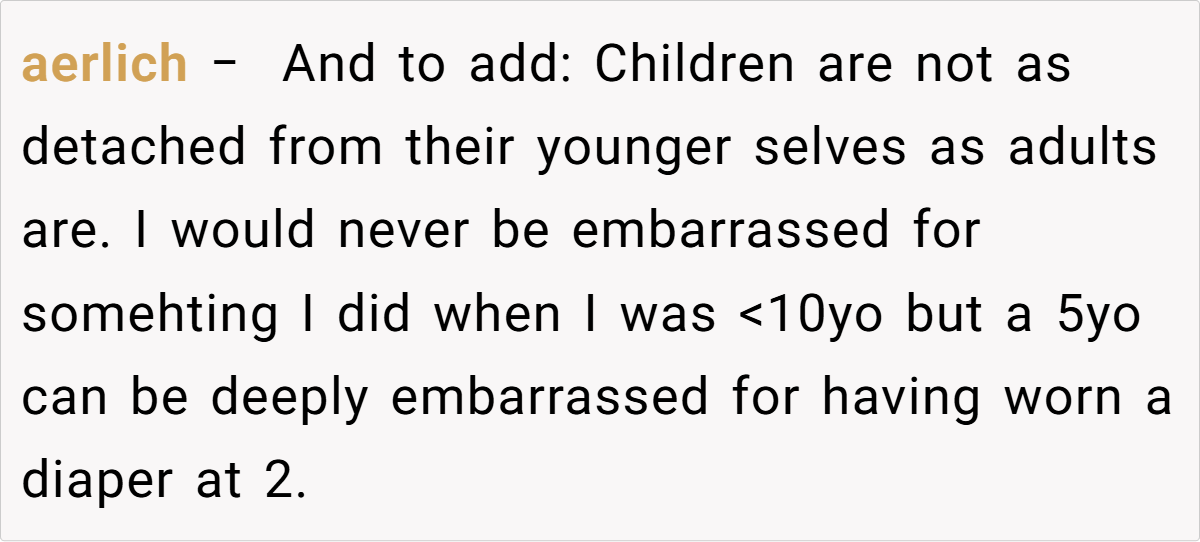

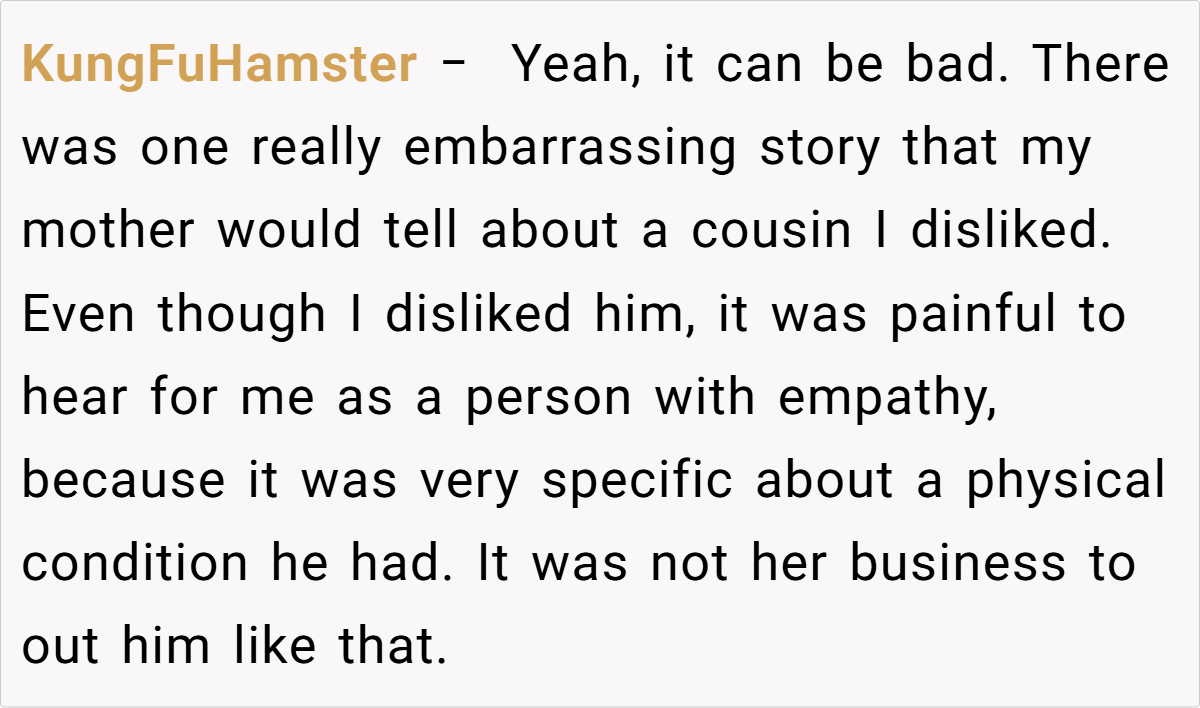



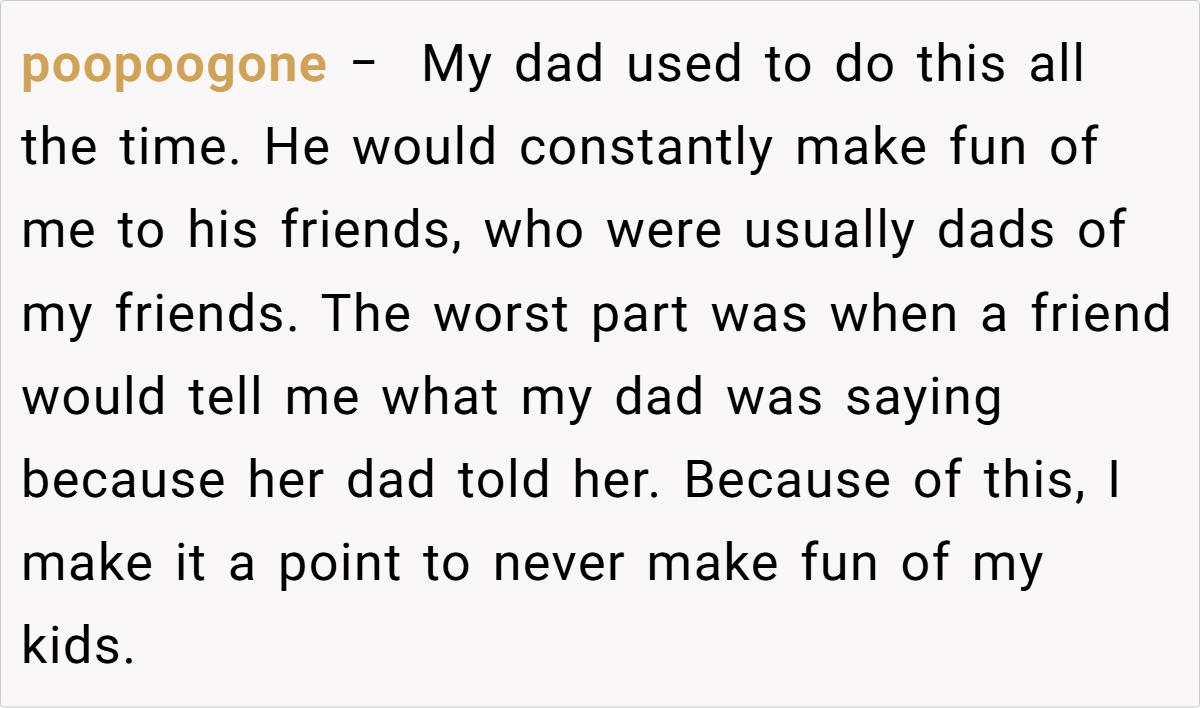
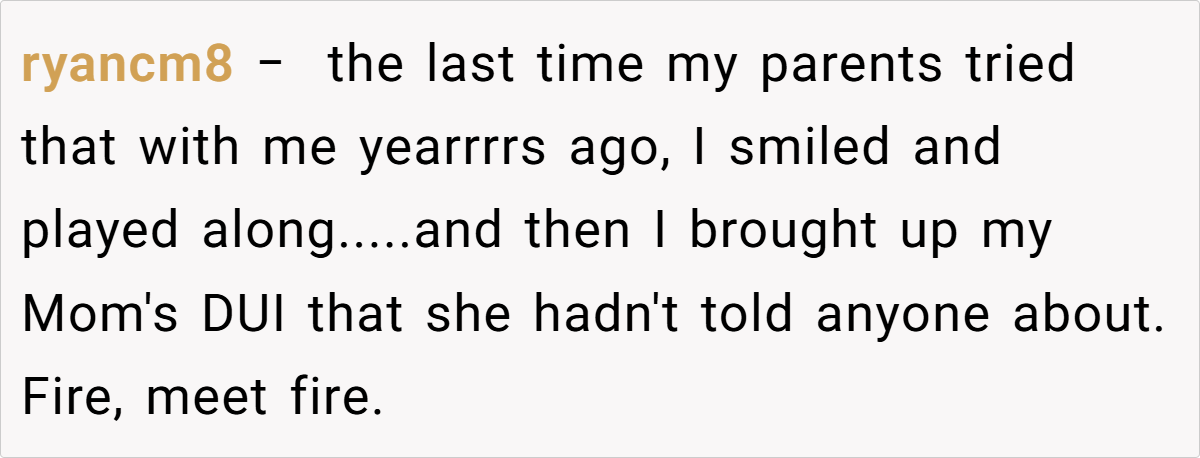

These are popular opinions on Reddit, but do they really reflect the full complexity of family dynamics? The varied responses show that while some find solace in humor, others view these recurring stories as a breach of trust. The discussion invites us to consider: is it possible to laugh together without leaving someone feeling small?
In wrapping up, this narrative isn’t just about one embarrassing dinner story—it’s a call to reexamine how we share our personal histories. Let’s open the floor: How do you balance humor with sensitivity in your own family gatherings? What would you do if you found yourself caught between shared laughter and personal discomfort? Your thoughts and experiences matter—join the discussion and share your take on this delicate balancing act.

